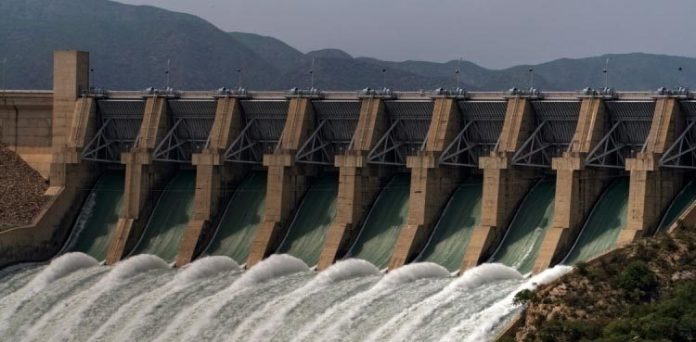ISLAMABAD, JUNE 09 (DNA) – To address the misgivings of Sindh, the Water and Power Development Authority (Wapda) chairman has suggested that the operative control of the Kalabagh dam should be handed over to the province.According to him, no work on Kalabagh dam will start unless harmony is achieved among the provinces, and if the dam built, then Sindh shall have its operational control in order to address its uncertainties over use of water.
At Senate Standing Committee on Water Resources, chaired by Senator Shamim Afridi, Wapda chief Muzzamil Hussain, while giving his views on water crisis in Pakistan, said that the country has storage capacity of water for only 30 days whereas India has the same capacity for 170 days.
He also highlighted that Sindh doubts that Punjab will devour its water share from the dam.
As per Senator Gianchand, it is quoted that there was no political consensus on building the Kalabagh dam, therefore, no discussion should be held on the subject.
Senator Quratulain Marri, said the project of Kalabagh Dam was abandoned due to failure in reaching the consensus by the inter-provincial Council of Common Interests (CCI).
The Wapda chairman emphasized the need for arriving at a political consensus for building mega dams and setting the price of water.
According to estimation 25 million acre feet of water is being wasted every year, as we are lacking the reservoirs. Tarbela dam has so far lost its 30% water storage capacity.
He opposed the planting of sugarcane crop that required excessive water and suggested that only those crops should be cultivated that needed low water supply.
Hussain said water storage capacity of Tarbela and Mangla dams had gone down with the passage of time. Water flow into Tarbela dam was fifty percent less few days back, but now due to snow melting on mountains in northern region, the water flow has improved. He said that due to silting, water storage capacity in Tarbela dam has reduced by 30 percent.
He said that water availability has reduced while the consumption is increasing. We are supplying water to Kachi Canal, but the Baluchistan province has not built its irrigation and water distribution system.
Referring India, he said they had built 943 dams to store water for 170 days whereas Pakistan had 155 small and big dams with storage capacity for only 30 days. He said building mega dams is mandatory to enhance the country’s water storage capacity.
According to the Wapda chairman, 260,000 tube wells are running in the country that have reduced the ground water levels.
Pointing out the difficulties faced in initiating construction work on the Diamer-Bhasha Dam, Hussain said allocated land for the dam was on the boundaries of both Khyber-Pakhtunkhwa and Gilgit-Baltistan. Whenever officials tried to start the construction work, people from both sides resorted to gunfire and so far 12 Wapda employees had lost their lives.
So far, the government has given Rs80 billion in compensation to the people of these regions but, both regional governments were not cooperating, he said. He pointed out that roads were being built across the country, but no work had been started on a 150 km road that would connect Diamer-Bhasha Dam.
The Wapda chairman advised that there are some flaws in Indus Waters Treaty, which needs to be addressed. He requested the government to implement an aggressive policy and make the treaty part of Pakistan’s foreign policy. He termed Indus Waters Treaty, the most precious asset for the country. He told that the Indus enters Pakistan at an altitude of 8430 feet and gives us a drop of 7030 feet till Kalabagh at an altitude of 1400 feet giving us multiple sites along the stretch for building reservoirs and run of the river projects.
Any country that has 1000 cubic meter water available per capita is categorized in water scarce countries and per capita water availability in Pakistan at present is 903 cubic meters. This average per capita water availability was around 5000 cubic meters back in 1951, he said.
He also exposed that 921 appointments were made in the National Engineering Services of Pakistan (Nespak) on political basis, instead of merit which is main reason of destruction of the engineering firm. He recommended discontinuation of such practice in future to increase the efficiency and productivity.












